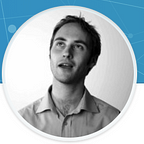The Miracle Of Calais
The humans had toiled and trekked to the shores of Calais. They had been forced to flee a brutal conflict, the origins of which lay in Western foreign policy.
Their journey had been a perilous one and many humans had been forced to stop along the way, often collapsing from hunger or exhaustion after months of horrendous hardship. Yet many more had continued, determined to escape the atrocities that lay behind them.
The humans had begun to reach the shores of Calais on a cold, wet January morning. The conflict had escalated on 24th December that year, because the new regime knew that the West would be celebrating Christmas, and that bad news stories would be easier to hide. It had taken the humans more than three weeks to cross the land. The first to arrive was a young couple and their two children. The man and the woman were teachers, their two children seven and eight years old. Five years ago they had built a school, and had taught more than two hundred children. But their curriculum had been deemed blasphemous by the new regime, punishable by rape, torture and death. So they had fled for their lives.
They were the first to arrive, many, many more humans followed. Thousands upon thousands.
And they gathered, and waited. And despite their hunger, and their exhaustion and their sorrow and their fear, they waited with pride and with dignity. Some sat because they could no longer stand. But many stood, looking out across the sea, dreaming of ways to get across and put more distance between themselves and their oppressors. Some considered building rafts, but they had all heard those stories. Rumours had begun to spread about the army being called in to ‘disperse the crowds,’ as though this were some form of illegal protest. But these humans didn’t even want to be here. They wanted to return to their homes, but they could not.
And so they stood. And their hunger, and their fear, and their exhaustion and their sorrow grew. And the icy rain began to pour.
Then, on the horizon, a single boat appeared. It was a small fishing boat, and it was heading straight towards the crowded shore. Many of the humans spotted it as they gazed out to sea, but thought little of it because their minds were elsewhere. And then another appeared, and another, and another. Ten in all, some were larger and easier to see as they sailed closer. The first boat arrived, the skipper was a teacher as it happened, she taught languages. She picked up a megaphone and addressed the crowd.
“Friends, we are here to help you. We will take you across the sea to where there is food and shelter. But you must be patient, please do not run or people will be hurt or drown. Please organise yourselves into groups along the shores and form lines. Please keep families together, do not put women and children first. It is much more important that you stay together. We will leave no man, woman or child behind. We will keep going for as long as it takes us.”
“My friend” replied the teacher, we cannot thank you enough for your kindness and we will do as you say. But it will take you months to transport us all in your ten boats.”
The skipper smiled, and the teacher looked beyond her and he saw them. Boats, hundreds upon hundreds of boats.
From the author: I originally had more to add to this story, but when I wrote that final line it felt as though it may in fact be a good place to stop. What do you think? This is a first draft, and I’m sure that I’ll go back and tweak it, but I quite like the idea of ‘one-take!’
